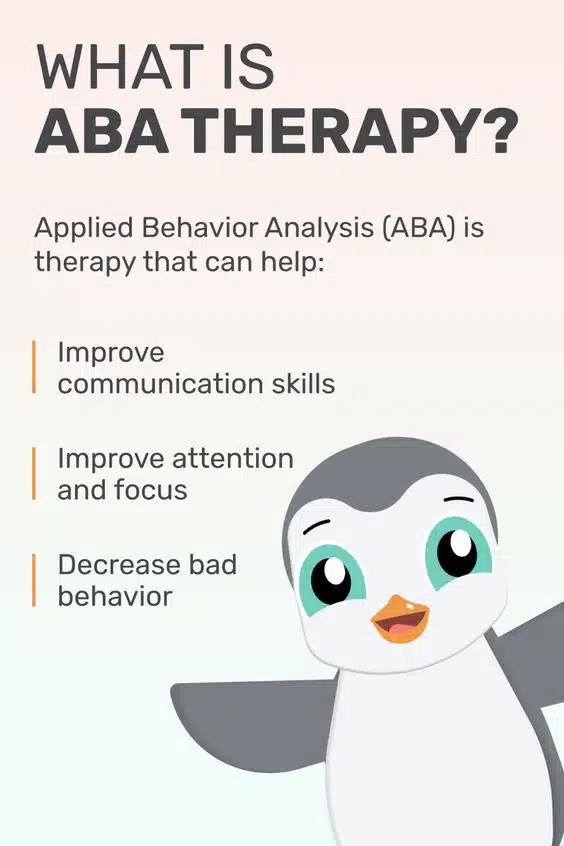In a groundbreaking development, researchers have unveiled a comprehensive analysis of the pros and cons of Applied Behavior Analysis (ABA) therapy, a widely debated approach for supporting neurodivergent children’s growth and development. This long-awaited guide promises to shed light on the intricacies of ABA, empowering parents to make informed decisions tailored to their child’s unique needs. With an estimated 1 in 36 children diagnosed with autism spectrum disorder, this game-changing resource offers a beacon of hope, equipping families with the knowledge they desperately seek. As the world eagerly awaits the unveiling of this in-depth exploration, a wave of empowerment and understanding washes over households navigating the complex landscape of neurodivergence.
Table of Contents
SPONSORED BY: Goally
Goally’s Kid’s Tablet has one of the largest libraries of skill-building videos (like “How to Share” and “What To Do When You’re Lost”) in the Goal Mine app.👇
What is ABA Therapy?
ABA therapy is a research-based intervention that focuses on improving specific behaviors in kids with thinking and learning differences. It’s commonly used for children with autism spectrum disorder (ASD) but can also be beneficial for kids with ADHD and other developmental disabilities. ABA therapy uses positive reinforcement, prompting, and other techniques to encourage desired behaviors and reduce challenging ones.
Now that you have a basic understanding of ABA therapy let’s explore the pros and cons to help you decide if ABA therapy is the right choice for your child.
Pros of ABA Therapy
When considering ABA therapy pros and cons, it’s essential to start with the benefits.
Here are some of the advantages of ABA therapy:
- Research-backed effectiveness: ABA therapy has a strong evidence base, with numerous studies demonstrating its effectiveness in improving social, communication, and adaptive skills in children with ASD and other developmental disabilities.
- Individualized approach: ABA therapy is for each child’s unique needs, strengths, and challenges, ensuring that the intervention is relevant and effective for your child.

Read more: ABA Therapy for ADHD | Parents Guide
- Transferable skills: ABA therapy teaches skills that work in various settings, such as home, school, and community environments, promoting independence and social integration.
- Parent involvement: ABA therapy encourages parents to be active participants in their kid’s treatment, providing you with the tools and strategies to support your child’s progress at home. This can be especially helpful when using tools like Goally, which offers learning tablets and apps for neurodivergent kids.
Cons of ABA Therapy
While ABA therapy has its benefits, it’s also essential to consider the potential drawbacks.
Here are some of the cons of ABA therapy:
- Intensity and time commitment: ABA therapy can be time-consuming and intensive, often requiring 20-40 hours per week of one-on-one sessions. This can be challenging for families to manage, both in terms of scheduling and the emotional toll it may take on parents and children.
- Cost: ABA therapy can be expensive, and while insurance may cover some of the costs, families may still face significant out-of-pocket expenses.
- Controversy: Some critics argue that ABA therapy is too focused on changing behaviors to fit societal norms rather than embracing neurodiversity and promoting self-advocacy. This has led to concerns about the ethical implications of ABA therapy and its potential impact on a child’s sense of self-worth.
- Not a one-size-fits-all solution: While ABA therapy is effective for many children, it may not be the best fit for every child. Some kids may respond better to other interventions or a combination of therapies.

How to Decide if ABA Therapy is Right for Your Child
When weighing the ABA therapy pros and cons, it’s crucial to consider your child’s unique needs and circumstances.
Here are some factors to keep in mind:
- Consult with professionals: Speak with your child’s pediatrician, psychologist, or other specialists to gather their insights and recommendations on whether ABA therapy is appropriate for your child.
- Research and explore options: Take the time to learn about ABA therapy and other available interventions, so you can make an informed decision about the best course of action for your child.
- Consider your family’s needs: Think about the time commitment, financial implications, and emotional impact of ABA therapy on your family. Is it a feasible option for your family’s lifestyle and resources?
- Trust your instincts: As a parent, you know your child best. Trust your gut when deciding if ABA therapy aligns with your child’s needs and your family’s values.
Final Thoughts on ABA Therapy Pros and Cons
ABA therapy can be a valuable tool for many neurodivergent kids, offering evidence-based strategies to improve behaviors and skills. However, it’s important to consider the potential drawbacks and whether it’s the right fit for your child and family. By carefully weighing the pros and cons, consulting with professionals, and trusting your instincts, you can make the best decision for your child’s unique needs. Remember, tools like Goally can also be a great support in your child’s journey, providing learning tablets and apps designed specifically for neurodivergent kids.
This post was originally published on 05/05/2023. It was updated on 07/11/2023.
Emily is a seasoned blog writer for Goally, leveraging her extensive background in child psychology and special education to provide valuable insights and resources for parents. Her commitment to understanding and addressing the unique needs of these children, combined with her expertise in educational strategies, makes her a credible and empathetic voice for families.








